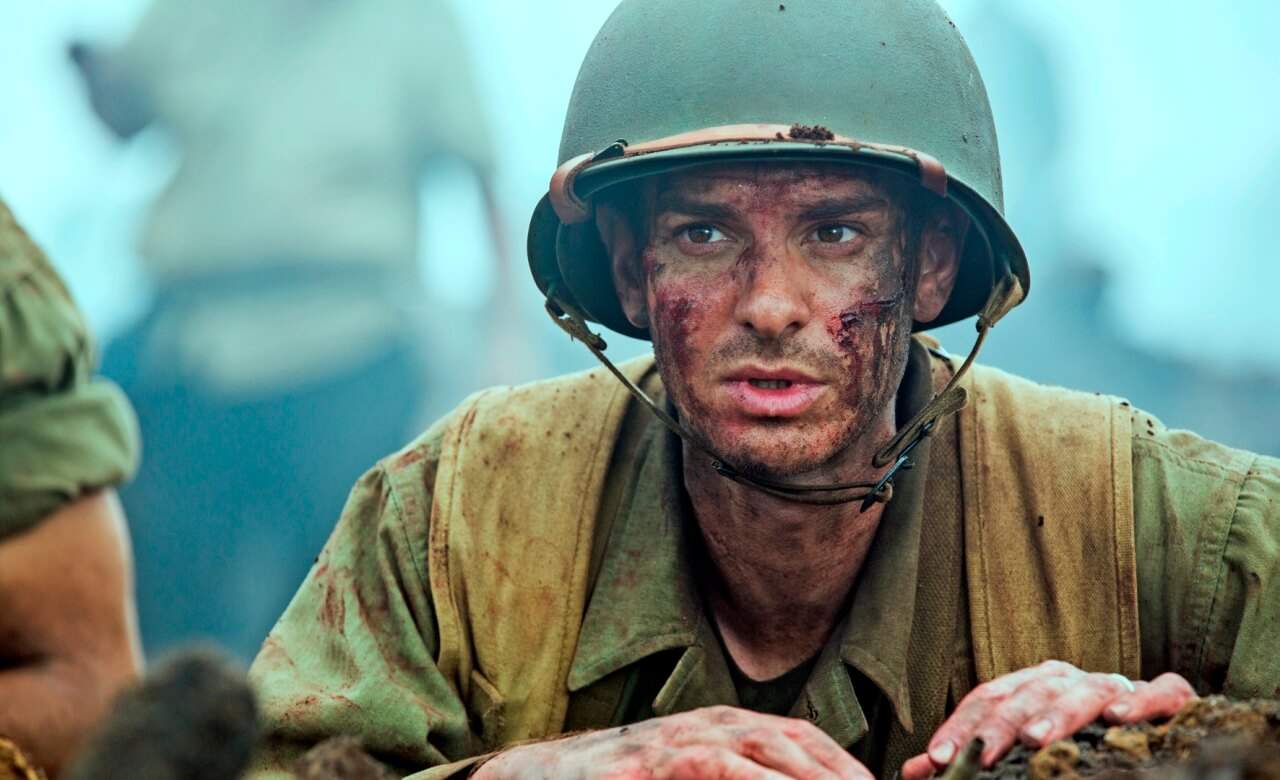Hacksaw Ridge
Mel Gibson returns to the director's chair with a brutal, confronting and uplifting true story of extraordinary heroism.
Overview
'Based on real events'. It's been an incredibly popular theme of late, with an almost unceasing run of biopics and historical dramas coming our way every year for the past decade or so. Those four simple words imbue a movie with an immediate sheen of credibility, commanding the audience's attention and respect in equal measure. The thing is, it's also particularly sneaky. 'Based on real events' doesn't mean 'happened'. Instead, it provides filmmakers with a sizeable caveat upon which almost almost any fact can be supplanted by something far more exciting, or more moving or…whatever the movie needs, really. Hacksaw Ridge, Mel Gibson's first directorial offering in over a decade, stands apart on this front for two distinct reasons. Firstly, it opts for the far more concrete 'A True Story' at its opening. Secondly, it takes the almost unprecedented step of underselling the feats of its protagonist, American war hero Desmond Doss (Andrew Garfield).
In real life, as in the film, the famous WWII conscientious objector refused to carry a weapon because of his religious beliefs as a Seventh Day Adventist, yet still earned himself the Congressional Medal of Honour when he single-handedly carried 75 wounded men on his back during the battle for Hacksaw Ridge, lowering them one-by-one down a cliff face to safety while under constant fire from the enemy. Doss' real world battlefield valour, however, extended far beyond this feat, with his citation referencing numerous other instances of extraordinary heroism that fail to even rate a mention in the film. Perhaps it was cut for time, or perhaps Gibson and his team concluded that Doss' actions were already so unbelievable, to detail all of them would challenge even the most faithful historian. Either way, it's refreshing to see an already humble hero presented without the need to over-emphasise, over-sell and over-indulge.
Filmed in Australia with a predominantly local supporting cast, Hacksaw Ridge offers a surprisingly conventional first half for a director of Gibson's talent. The flashbacks to Doss' childhood and his troubled parents (Rachel Griffiths and Hugo Weaving), the romance with his sweetheart (Teresa Palmer) and his initiation into the military (under the supervision of Vince Vaughn and Sam Worthington) all play dangerously close to melodrama, saved only by the quality of the actors' performances. The sole purpose of this first phase is to establish with none too subtle a touch Doss' fervent religious conviction, cataloguing each and every instance of persecution, bullying and even the court martial that threatened to see him imprisoned for the duration of the war.
But Gibson has made a career out of terrifyingly visceral combat scenes (see also: Braveheart and Apocalypto), and from the moment the first bullet tears through the air and into the flesh of the soldier it finds, Hacksaw Ridge sheds its corniness and transforms into a brutal, confronting and violent recreation of one of WWII's bloodiest battles. Neither as involved as Saving Private Ryan, nor as haunting as The Thin Red Line, Hacksaw Ridge nonetheless delivers a truly frenetic sense of warfare, at times seeming closer to the clashing armies of the middle ages than the modern combat of the last century. The film is unashamedly unilateral in purpose, and the closing shot of Doss essentially ascending to Heaven is rather on the nose. Still, as a tribute to a genuinely extraordinary man and a return to form by Gibson, both are as welcome as they are overdue.





